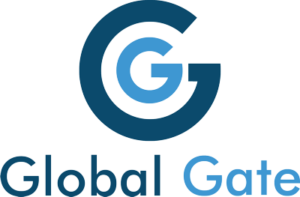 IRS Fresh Start Program Valencia
IRS Fresh Start Program Valencia
For all the taxpayers in Valencia, the IRS Fresh Start Program has brought an opportunity to pay off their debts without holding account of heavy interests and penalties. The IRS first introduced the Fresh Start Program in the year 2008 and later expanded it in 2012. This program allows you to make the payment over the course of six years. Your monthly dues are calculated based on your current income and the value of liquid assets. And this way, you could affordably settle your debts with whatever you’ve got in your hands.
The plan is designed such that, within the next six years, you are free from all dues. The program also takes into consideration your substantial hardships like unemployment. If you have been unemployed for over 30 days, you are eligible to waive off all your penalties.
Do I qualify for IRS Fresh Start?
There are specific regulations to leverage this tax penalty truce. You can qualify for the IRS Fresh Start Program if you can suffice these criteria:
- If you have missed any tax return, file it immediately. Any reputed firm can easily handle your past years of unfilled tax returns for up to 20 years.
- You need to keep all your records of withholding and tax payments straight at least from the last six months.
- As a self-employed individual, you must prove a 25% decrease in your income.
- Your tax amount should be lower than $50,000 at the end of the year.
- As a single filer, your earnings shouldn’t be more than $100,000 per year. Plus, for the married taxpayers, filing jointly, $200,000 per year is the threshold.
Understand the underlying aspects of the process to evaluate which course of action works suitably with your financial being. However, you can get along with a tax professional for any further assistance.
Can you get IRS debt forgiven?
Yes, the government seems to understand the intricacies of life and therefore offers an option for IRS debt forgiveness. There are also conditions when the tax debt is partially written off. To get started, the IRS evaluates your current financial situation. This is to verify how much you are capable of paying at this point in time.
The IRS can never force you to pay a sum, which leaves you without any financial security. And this implies the fact that the IRS is not entitled to collect more than you can viably pay. Therefore, IRS programs like Fresh Start are getting popular. However, it is vital to know how much tax you owe to the government before figuring out the process to go about. You can check your tax debts via IRS online portals.
More so, you can mail the IRS a form and have a tax professional to get through the research for you. Know that if you can’t pay off the tax but still haven’t asked for forgiveness, you are susceptible to the strict collection actions against you.
Can I negotiate with the IRS myself?
If you cannot pay back the taxes, you have three alternatives: ask for a reduced amount through an offer in compromise (OIC), request to temporarily delay the collection until you’re financially stable, or negotiate a payment plan. This means that you can negotiate with the IRS yourself, but the experts strongly advocate against it. And the decision is essentially made by the IRS after carrying out an analysis of your liabilities and assets plus your source of income and debts.
There have been cases where people have applied for OIC, but their final verdict has taken long to come. In case they get rejected, the penalties and interests have further accumulated over this period. Therefore, it is best to choose reliable, professional help so that you can negotiate over a proper tax value to pay.
How Much Can IRS garnish wages?
The process of taking a part of your paycheck directly to clear your dues is known as wage levy or garnishment. The IRS can start garnishing wages if you have been a long-term tax defaulter. The amount of garnishment is determined by how much tax you owe to the IRS. However, they can only collect a particular portion of your salary.
The IRS needs to send you a series of notices before it sets to levies your paycheck. These include:
- A notice and demand for payment.
- A notice of intent to levy.
- A notice of your right to a Due Collection Process (CDP) hearing.
If the IRS decides to issue a levy, it will inform your employer first to send them the chosen amount directly from your paycheck. They calculate the exemption amount using your details like the number of dependents, filing status, and pay period. For a single employee with no dependents and a salary of $2000 a month, the IRS can take a maximum of $1076 from your check. tax debt
